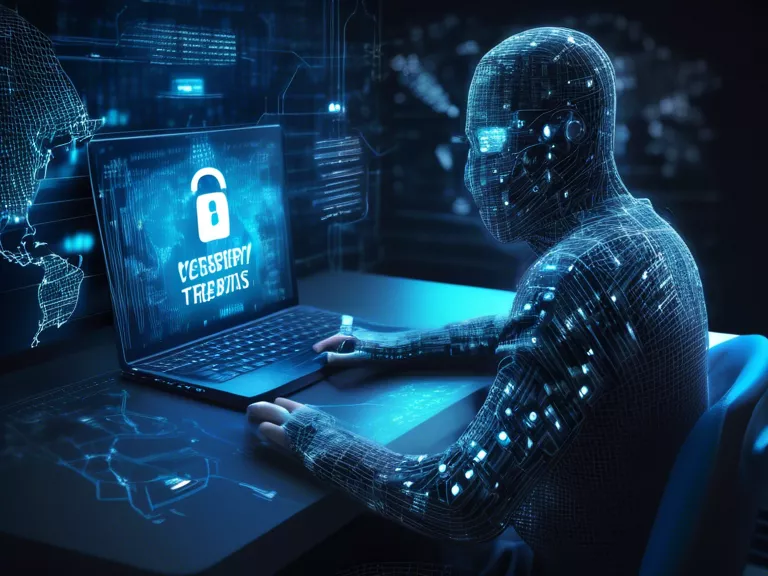
Introduction
In today's digital age, cybersecurity plays a crucial role in safeguarding our online activities and assets. When it comes to gaming, ensuring the security of your game plan is essential to protect sensitive data, prevent cyber threats, and enhance user trust. This article delves into the importance of cybersecurity in gaming and provides valuable insights on how to level up and enhance security measures.
Understanding Cybersecurity in Gaming
Cybersecurity in gaming refers to the practice of protecting gaming systems, networks, and data from cyber threats such as hacking, data breaches, malware, and phishing attacks. With the rise of online gaming platforms and the increasing amount of personal and financial information stored in games, the need for robust cybersecurity measures has never been more critical.
Common Cyber Threats in Gaming
The gaming industry is not immune to cyber threats, and game developers and players alike must be aware of the risks involved. Some of the common cyber threats in gaming include:
- Account Hacking: Hackers may target gaming accounts to steal personal information, in-game currency, or valuable items.
- Distributed Denial of Service (DDoS) Attacks: DDoS attacks can disrupt gameplay by overwhelming servers with traffic, causing lag and downtime.
- Phishing Scams: Phishing scams in gaming involve fraudulent emails or messages that trick players into revealing their login credentials or personal information.
- Cheating and Exploits: Cheating tools and exploits can compromise the integrity of games and ruin the experience for legitimate players.
Leveling Up Your Cybersecurity Game Plan
To enhance security in your game plan and protect against cyber threats, consider implementing the following cybersecurity best practices:
Use Strong Passwords and Two-Factor Authentication
Encourage players to use strong, unique passwords for their gaming accounts and enable two-factor authentication for an extra layer of security.
Keep Game Software and Systems Updated
Regularly update game software, operating systems, and security patches to patch vulnerabilities and protect against known exploits.
Encrypt Sensitive Data
Encrypt sensitive data such as user information, payment details, and in-game communications to prevent unauthorized access and data breaches.
Educate Players on Security Awareness
Raise awareness among players about common cyber threats, phishing scams, and safe online practices to empower them to protect their accounts and personal information.
Monitor for Suspicious Activity
Implement monitoring tools to detect and respond to suspicious activity, such as unauthorized logins, unusual account behavior, or signs of a potential breach.
Collaborate with Security Experts
Work with cybersecurity professionals to conduct regular security assessments, penetration testing, and vulnerability scans to identify and mitigate security risks proactively.
Conclusion
In conclusion, cybersecurity is a vital component of gaming that should not be overlooked. By leveling up and enhancing security measures in your game plan, you can better protect your players, data, and reputation. Stay informed about the latest cyber threats, implement robust security practices, and collaborate with experts to ensure a secure gaming environment for all. Remember, in the world of gaming, a strong defense is the key to victory.
Glass of Win
Smile to Africa Adventure
Monika Brodka
USS Oriskany
Literati2
Penny Hardaway
Designed in Finland
Refiza
Dan Rodimer
Local Savage
ATW Traveler
Marcel Theroux
Kemble Gallery
Cronk's Oakridge
El Horizontal
Em Cada Pagina
Iroko Designs
La Fonda Mexican Restaurants
Layton Bio
Nanjing Expat
Richard YT
Righting Food
Shkodra Daily
Merabsp
pfoto rzd
Esculturasy Monumentos
Warren Indiana
Jintara Fan Club
fted cruz
Khamag Mongol
Military Art Company
beavtrav
Belum Lama
Blue Rooster Food Company
DJ Vibe
eugene the brand
hennypalooza.com
hillsideornamentals.com
Komik Gratis Online
matsunoyanotsuma.com
mix4max.com
sharingourfoodadventures.com
thebestbedlinenintheworld.com
thegrayandorange.com
toronto-restaurants.com
yamato-movie.com
Scoops Ice Cream Truck
Uncover Studios
Fc Lupopo
Toci Lamart



